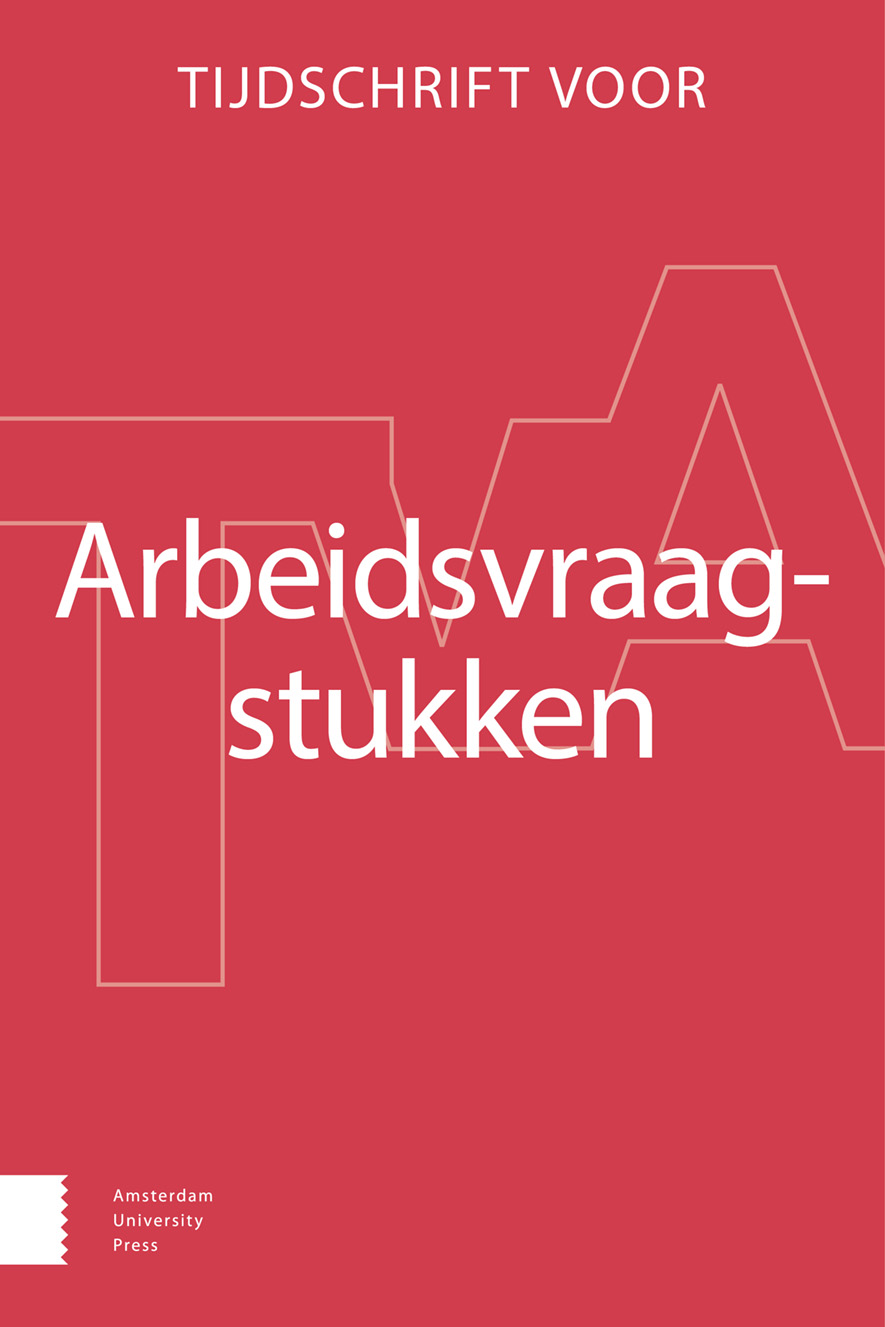-
oa Psychische vermoeidheid en plezier in het werk bij Vlaamse werknemers
Een toepassing van het JD-R-model
- Amsterdam University Press
- Source: Tijdschrift voor Arbeidsvraagstukken, Volume 22, Issue 4, Dec 2006,
Abstract
Fatigue and job satisfaction among Flemish employees. An application on the JD-R model
Using the Job Demands-Resources (JD-R) model this study analyses differences in fatigue and well-being in a representative sample of Flemish employees (N = 12095). The JD-R model assumes that the prevalence of high job demands is associated with strain related phenomena such as fatigue, whereas the availability of job resources in the workplace enhances employee well-being. Jobs combining high job demands and low resources result in the most problematic levels of fatigue and employee well-being. Our analysis confirms the assumptions of this model. Work overload, emotional and physical demands, work-home interference and job insecurity are positively associated with fatigue and negatively with employee well-being. Job autonomy, quality of the relation with the supervisor and learning opportunities are negatively associated with fatigue and positively with employee well-being. Partial evidence is found for the buffer hypothesis: at high levels of work overload a rise in job autonomy reduces the level of fatigue and increases the level of employee well-being. Also our analysis shows that a combination of low job autonomy and few learning opportunities at workplace level are associated with extremely high levels of fatigue and very low employee well-being.


